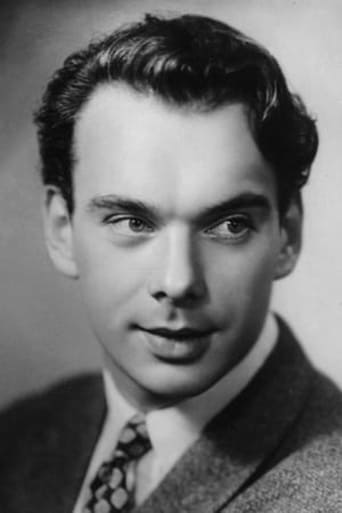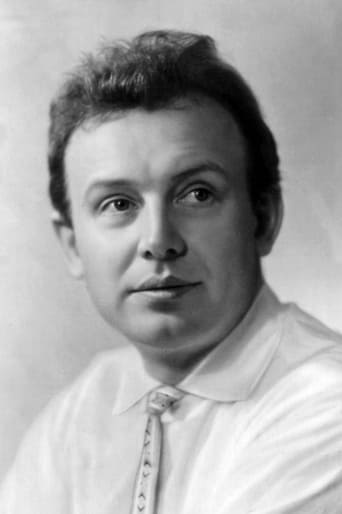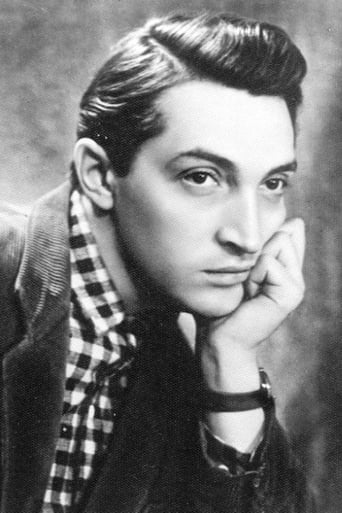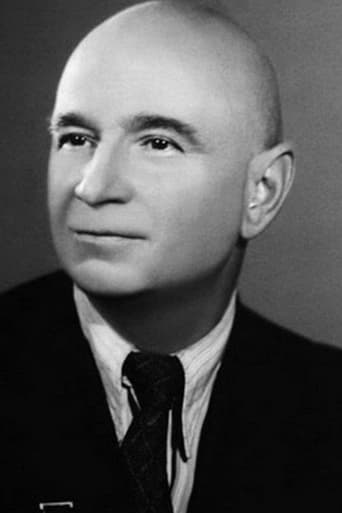Stoutor
It's not great by any means, but it's a pretty good movie that didn't leave me filled with regret for investing time in it.
Hadrina
The movie's neither hopeful in contrived ways, nor hopeless in different contrived ways. Somehow it manages to be wonderful
Tyreece Hulme
One of the best movies of the year! Incredible from the beginning to the end.
SocalSam
This is a movie that you must see if you want to see science and the process of fail-success. The tension is built up with the exposure of two scientists, one of whom marries another scientist.
The set varies between the nuclear test lab, which is likely a real life decommissioned ammunition bunker and production factory. External scenes are the usual woodsy and natural tableau seen in these Soviet propaganda films. Food is abundant, as is booze. Each night seems to be a party. People are a little more cheerful than I think the population was. The apartments that the scientists live in seems larger than what one thinks of in the Soviet Union.
Camera work is sharp, with each image having a depth of field that you don't see in US films. Acting is focused, the actor eyes all seem to be lasers looking into the depth of quantum mechanics.
During a visit to relatives, the scientist hitch a ride on a steam train with only flatcars, their feet hanging over the sides of the cars. There was no attempt to hide the primitive technology that resided in parallel with this insanely advanced technology drive.
If you are science nerd see this movie.
dkwootton
Nine Days of One Year (1962) was directed by Mikhail Romm and is part of the Khrushchev Thaw in Soviet filmmaking. The premise of the Cold War-era film is ballsy as it concerns the development of weapons of mass destruction. Mitya Gusev, a talented physicist, desires to harness his scientific discovery for the benefit of communism (by providing the energy for his brethren), but others along his path prompt Gusev to use his breakthrough for war. The unique narrative that highlights only nine days over the course of a year is particularly striking. By privileging only a few moments, the film creates an underlying importance in every waking moment. Gusev possesses the innocence and "childishness" (the "adults" being apathetic) that categorized the heroes of the Khrushchev Thaw; Gusev describes himself as having "more enthusiasm than brains." Although Aleksey Batalov maintains many of the same attributes in Gusev that he carried as Boris in The Cranes are Flying (1957) (including his ultimate sacrifice for the greater good), in Nine Days of One Year he is cold, distant and unaffectionate towards Lyolya failing to even notice the robe that she's worn for the entirety of the month. Instead of simply filming men debating the fate of the world, Nine Days also simultaneously portrays the budding and eventual disintegration of a marriage as we dive into the depths of Lyolya's psyche as she tells her husband, "(she) is a woman, not a domestic pet." Her viewpoint is equally privileged to that of Gusev adding a greater dimension to the film as well as adding to its overall success. The opening of the film spares no time for exposition. It grabs you by the collar from the opening shot as we fly over a miniature towards the Institute. The form in the film is remarkable. In one instance, the camera drops down to the dinner table as if a bomb is being dropped on the discussion. The scene is concluded pulling back into the sky as if detracting from the crucial moment in order to recognize the smallness of the conversation in the grand scheme of humanity. While there are shots of pure dynamism (rapid whip pans, Dutch angles and quick cutting), Romm often favors a wide lens, low angles and elaborate in depth staging in long takes to carry forth the narrative. Romm gives us an incredible extreme long shot of Gusev walking to the lab on the eighth day across a blank brick wall. The stark emptiness within the frame creates a canvas for the audience to project Gusev's feelings – how does the failure to discover thermonuclear energy weigh on Gusev, and most of all, is the ultimate sacrifice worth it? The film also poses an interesting question earlier on – is the basis of humanity's perfection measured in its ability to exterminate itself?
Teodor Georgiev
I am inclined to say I enjoyed the movie, though it was far from perfect. Did we need a narrator? His presence at the start of the movie hinted at a fairy tale. Not only was this not the case, but by the time he appeared again – at the end of the film – I had forgotten he was there and jumped, thinking, "Oh, that's right, there's a narrator here." I'm also not sure I agree with the film's message, or if I even find it realistic enough to be believable. We see Gusev's teacher happily give his life for science and then see his apprentice happily follow the same path. I wish we had gotten a longer bout of skepticism than the two minutes of screen time given to Gusev's father. I found myself completely agreeing with him. Do we need these atoms right now? Wouldn't it be better if science first researched a safe way to observe them? This made Gusev's character harder to relate to for me. Does he not value his own life, or does he place greater value on continuing Sintsov's experiments? Past that, the film was likable. I found it somewhat saddening that the science it described was presented more accurately than our own. I can't remember the last time I watched a movie that depicted the risks of carrying out new experiments. It's sad that our current movies tend to focus on the action and progress brought about by science and not on the risks it carries. Despite Gusev's willingness to give up his life, I found the movie more believable for how it handled the science. I was also pleased with how most researchers (aside from Gusev, who, again was wholly devoted to his work) were presented outside of their labs. The scenes of them eating dinner and living at home humanized them, and made the film more real. In the end, I enjoyed Nine Days In One Year, but no thanks to Gusev's presence, and I do think it can do without the half-hearted narration.
Armand
first virtue - Russian flavor, result of precise recipes. than - brilliant performance , nothing new when the cast is represented by Batalov and Smoktunovsky. but, more important, the script. it is a Soviet story but root is not science, not a love story, not the sacrifice of a remarkable man for humanity benefit but the existence like huge puzzle. images, music, the light, the force of shadows, all are ingredients of an universal tale and about reasons of small and ordinaries gestures. and it is not a surprise because a great director and a magnificent cast are wise parts for a form of poem in images, not exactly an art film but a film of ideas, behind propaganda command, before Perestroika wave.so, must see it !



